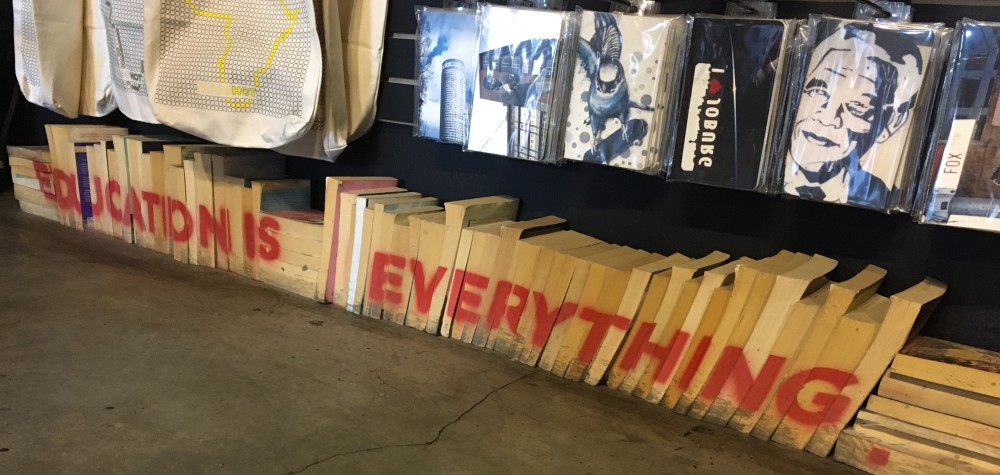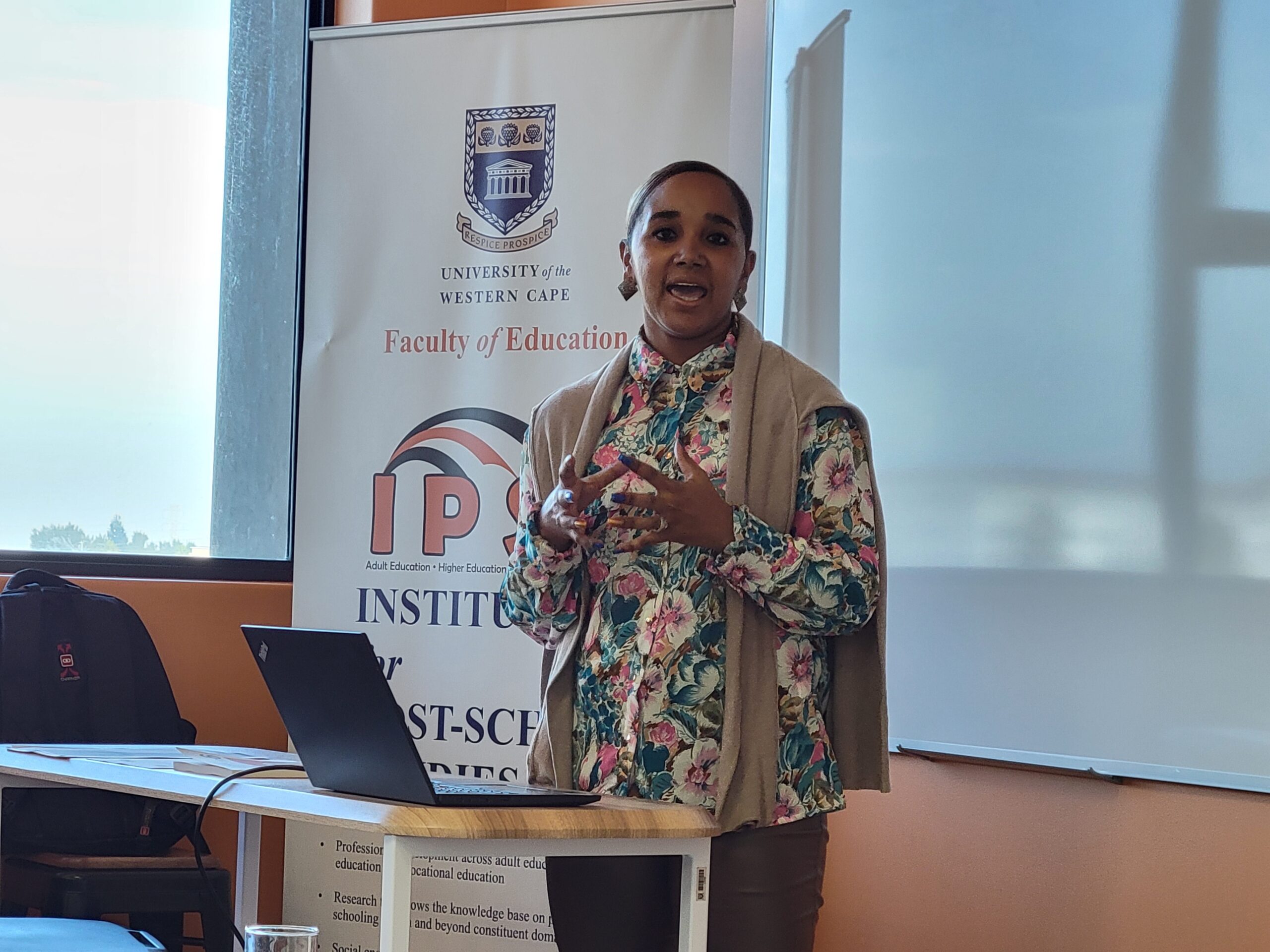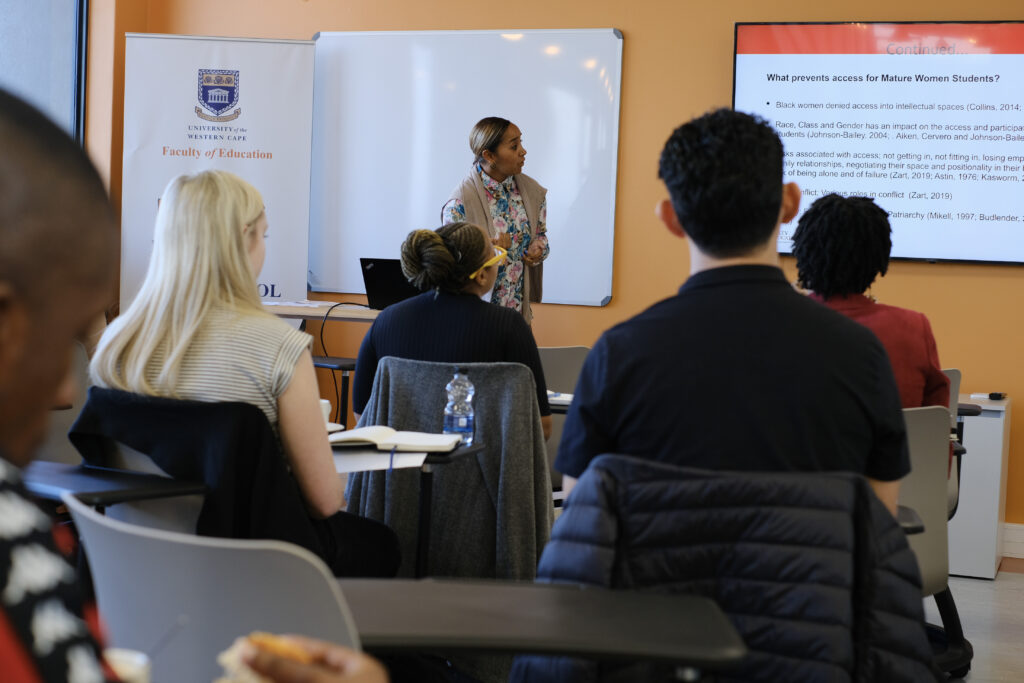
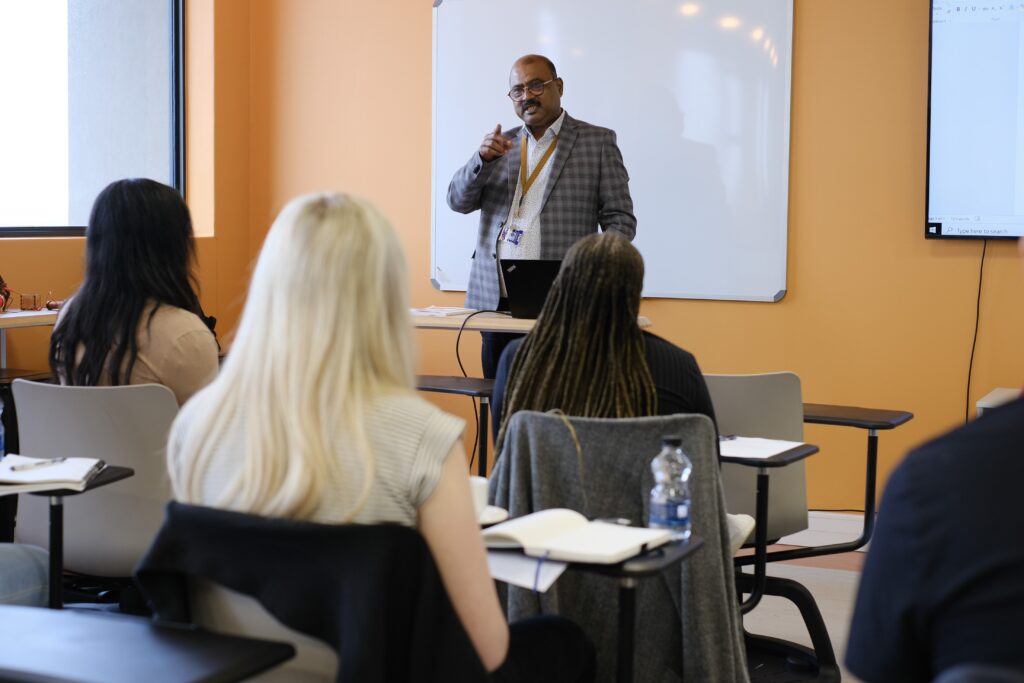
Upon arrival at the University of the Western Cape, the CSHPE experiential learning group was welcomed to the University of the Western Cape, Institute for Post-School Studies by Professor Rajendran Govender, Dean of Faculty Education. Professor Rajendran Govender was joined in welcoming us by colleagues from the Institute for Post-School Studies, including Professor Rajendra Chetty, Dr. Kaylianne Aploon-Zokufa, and Dr. Seamus Needham, who all prepared individual presentations to enhance our time together.
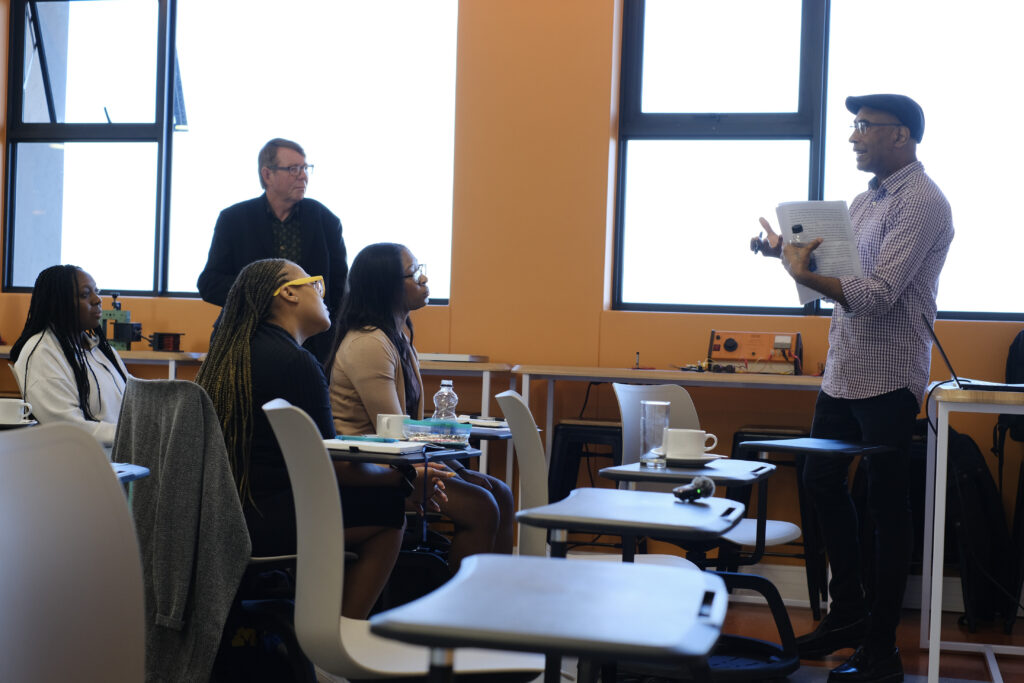
The first presentation provided by Professor Rajendra Chetty, a leading postcolonial scholar and professor at the University of the Western Cape, discussed academic capitalism and the neoliberal university. Professor Chetty utilized frameworks from Edward Said to understand the intellectual and how constituents in higher education spaces can use their voices and power to challenge the status quo on college campuses. His inspiring conversation also highlighted the need to de-link colonial frameworks and concepts of knowledge in higher education to provide a more just education system. Professor Chetty discussed how universities are often cited as a public good but discusses how universities are increasingly becoming more focused on performance indicators and growing endowments. This is a practice that is commonplace within American institutions, and it was interesting to hear the parallels to South African institutions as well. He concluded by discussing how increasingly, universities claim neutrality in the role of curricular education, but this claimed neutrality is instead indoctrination and holds massive power in society. This conversation was both inspiring and thought provoking as it provided a helpful context for understanding some of the similarities and differences in complex challenges faced between our differing higher education contexts in the United States and South Africa.
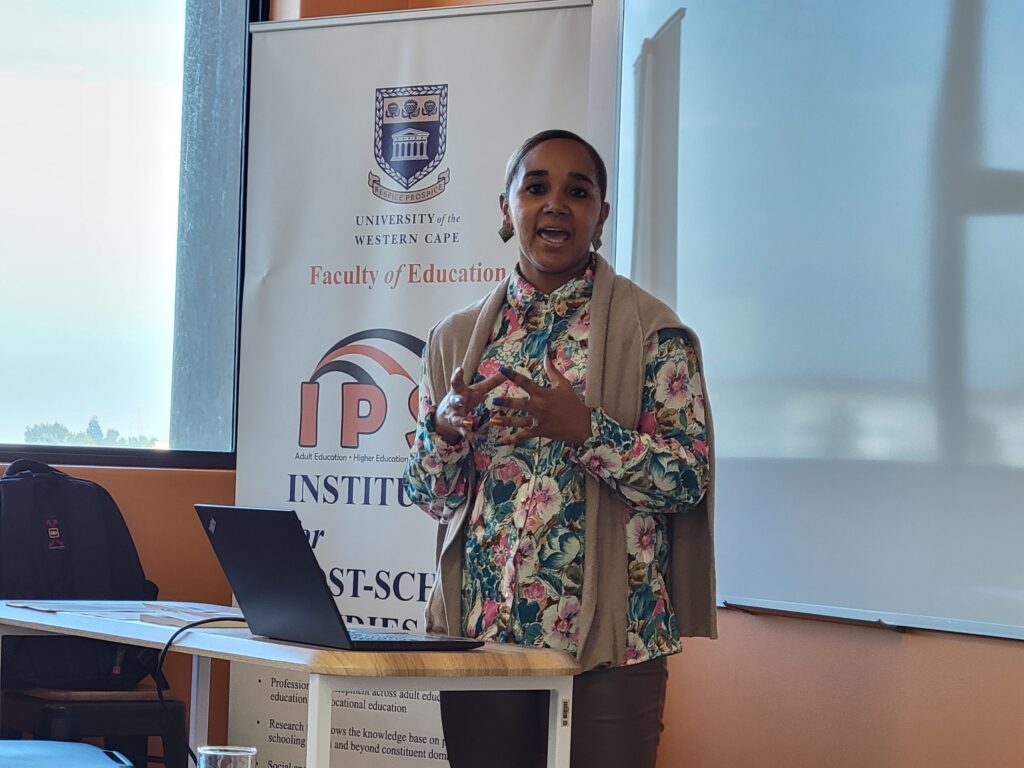
The second presentation was by Dr. Kaylianne Aploon-Zokufa, a lecturer at the University of the
Western Cape, which reviewed the lived experiences of first year participation in higher education for black adult women ECD (Early Childhood Development) practitioners through a feminist perspective. The presentation exemplified how education access for those in the study was dictated by their race, class, age, and gender. Early education was found to be a determinant of whether one would later enter higher education. She found that adult students have an increased barrier to entry into education and that women commonly sought out online learning opportunities. A role conflict was found to exist for black mothers, who often were faced with the prioritization of care taking responsibilities. Communities of practice, or women sharing their experiences and advice with one another, were found to help black women achieve greater success on their higher education journey. In the United States context, we also recognize that race, class, age, and gender are determinants to higher education access, but it was helpful to hear personal anecdotes from experiences of South African women to more fully understand the additional barriers faced by black women in the South African higher education context. This contextualization was helpful early on in our experiential learning trip, as it helped build a foundation for further conversation and gathering insights during our study trip.
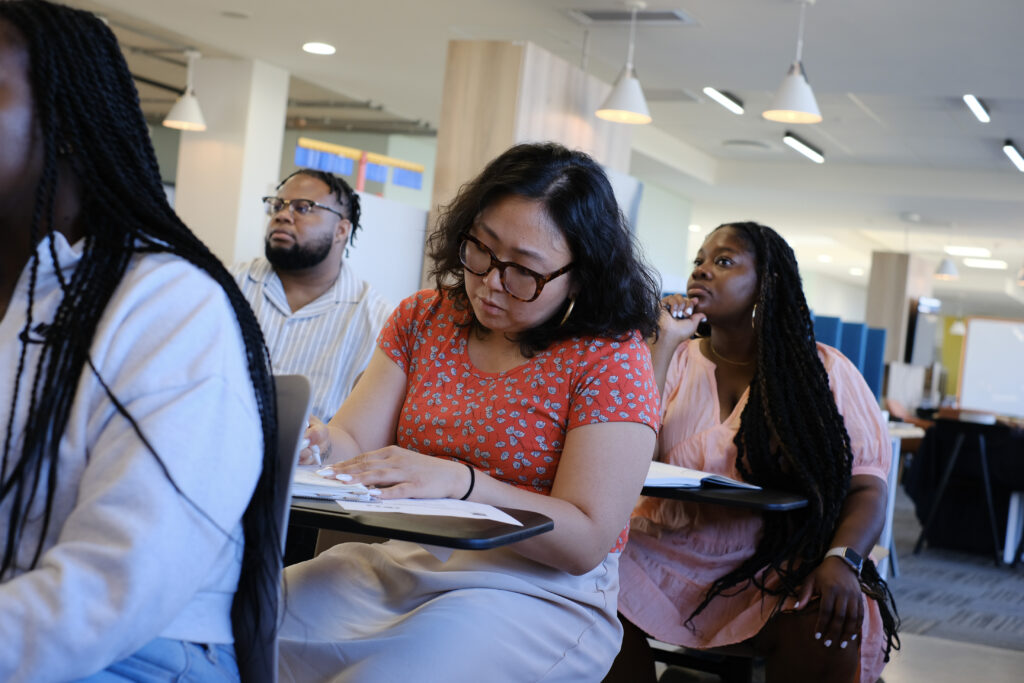
During our tea break after the second presentation, our colleagues from the Institute for Post-School Studies generously provided us with food and beverages to enjoy while mingling amongst ourselves and getting to know one another. Their kindness and hospitality was incredible and it was wonderful to connect one on one with our international colleagues. The final presentation was led by Dr. Seamus Needham, senior lecturer at the University of the Western Cape and Director of the Institute for Post-School Studies, and covered the transition that students experience from vocational education to higher education in the South African context.
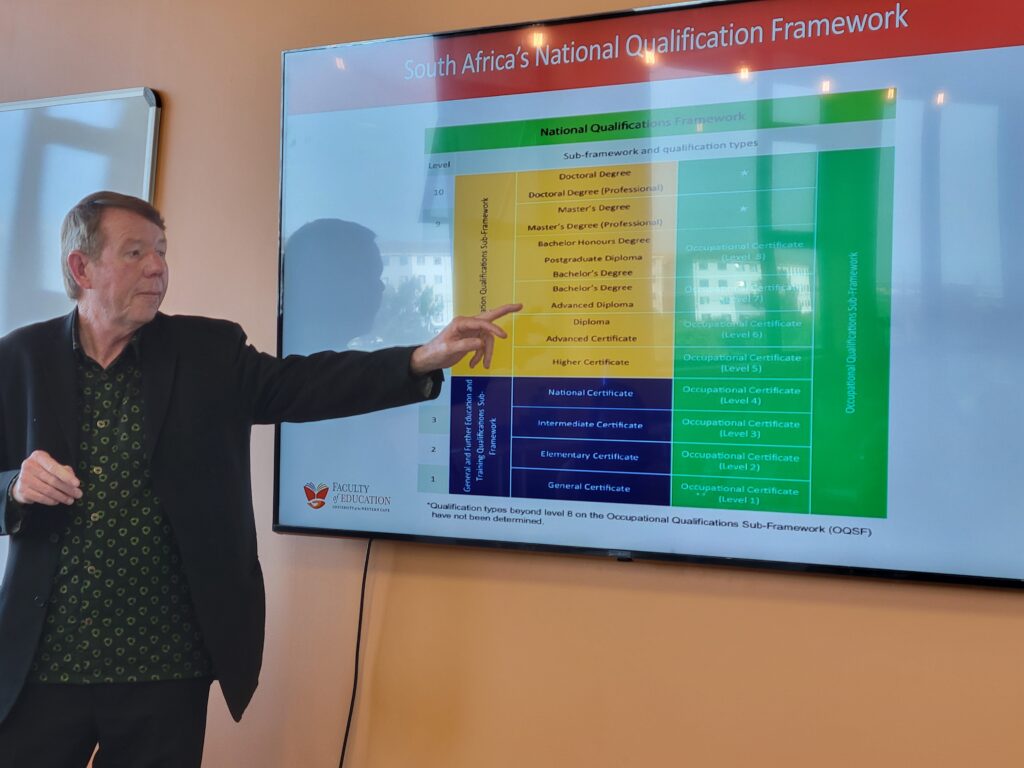
Dr. Seamus provided our group with an introduction to the South African Qualification Framework, consisting of 10 different levels of available higher education opportunities. We also discussed the overall Post-School Education and Training System (PSET), which consists of: Adult and Community Education and Training, Technical Vocational Education and Training (TVET), and higher education universities. We also learned of the shockingly high unemployment rates that exist in South Africa, noting that high unemployment rates also exist among young, educated South Africans. We discussed many of the associated challenges both placed on South Africans themselves and the higher education system as South Africa’s economy is not creating jobs for young people with college degrees. As South Africa’s economy and higher education systems continue to evolve, Seamus shared that the Institute for Post-School Studies aims to continue its research and development to support the future infrastructure of higher education in South Africa. As our group wrapped up our brief yet enriching session, thankful for the insights gained and the fostered community, we posed together for a group photo to help capture the memory and our time together before departing the University of the Western Cape.
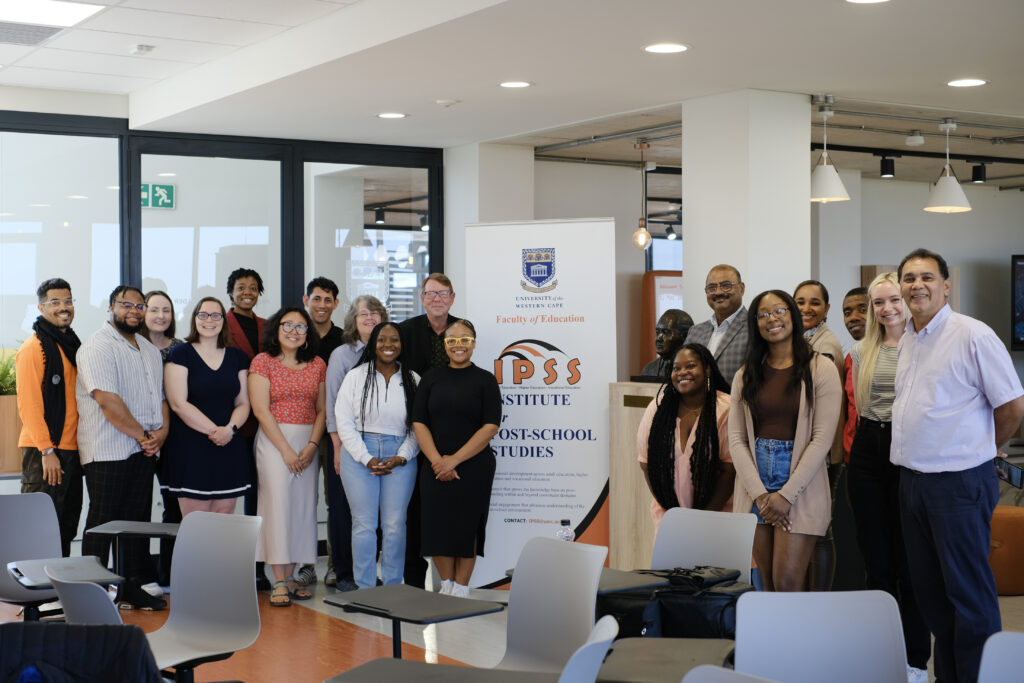
— by Stacie Benison, CSHPE master’s student
